15 Best Appium Alternatives for 2024
Sonu Kumar Deo
Posted On: December 29, 2023
![]() 31493 Views
31493 Views
![]() 10 Min Read
10 Min Read
Appium is by far the most familiar for Mobile Application testing. It has been a popular choice among Mobile app developers and testers for automating native, hybrid, and web applications on iOS, Android, and Windows mobile.
Appium is mostly used in test automation to determine whether a particular mobile app’s functionality is operating as intended. Appium’s open-source nature provides cost savings, a robust support community, flexibility, and adaptability to shifting technological landscapes, making it a popular choice for mobile app automation testing.
However, Appium isn’t the only mobile app testing tool out there. We can pick some Appium Alternatives as we’ve got a lot of options!
Now, the question arises, with so many choices, how do we pick the best alternative to Appium? Well, to make it easier, we have curated a list of 15 of the best Appium alternatives. Keep reading to learn about them. To delve deeper into the realm of Appium, explore our dedicated hub focusing on Appium Interview Questions.
Note: The following list of Appium alternatives isn’t in any particular order, and its hierarchy does not reflect priority or value in any way, shape, or form.
TABLE OF CONTENTS
1. Espresso
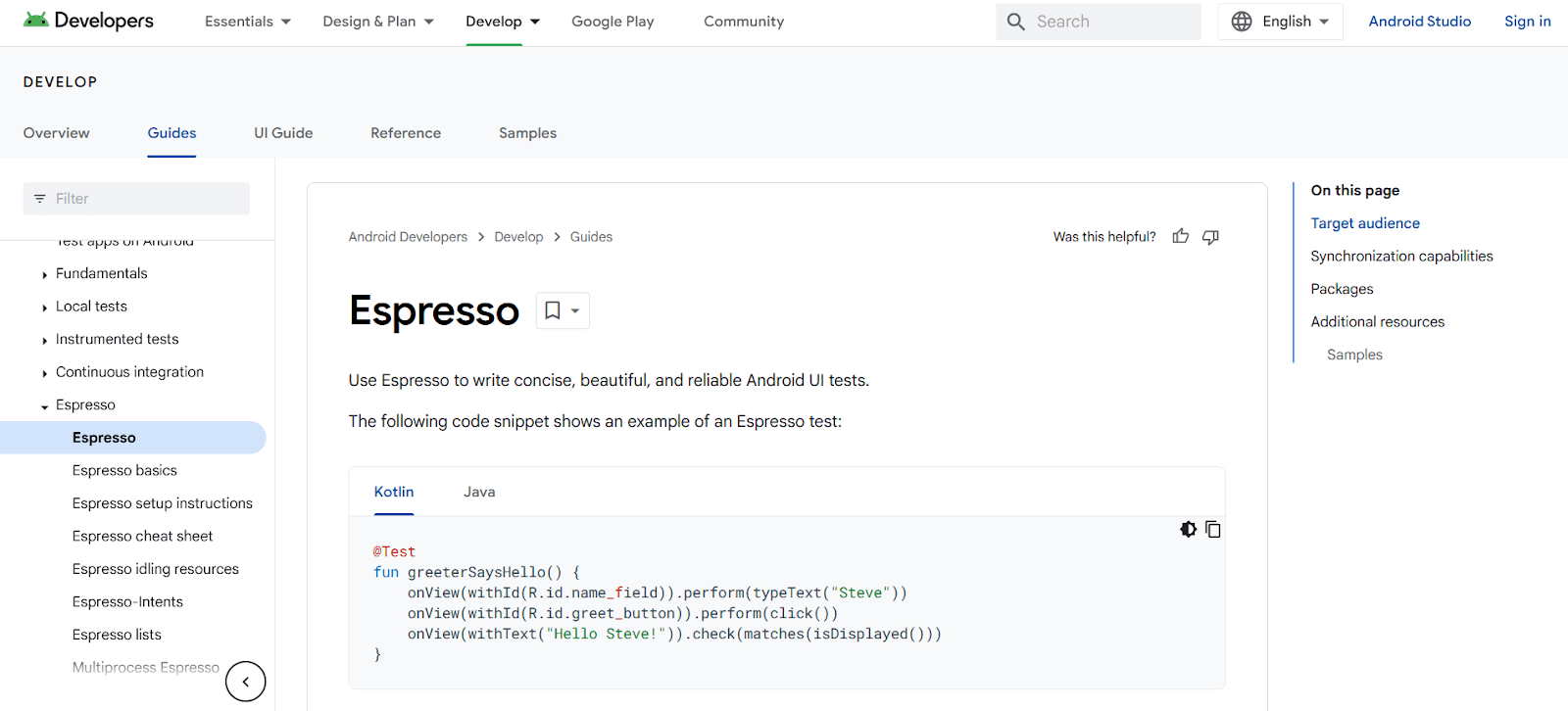
Espresso is an open-source mobile app testing framework developed by Google for Android mobile applications. It is designed to be lightweight and easy to use, supporting both hybrid and native mobile apps. Espresso is native to Android, so it is a familiar tool for developers on the platform.
Expresso is one of the key Appium alternatives and provides simple API commands to start with. The Espresso API encourages testers to think from users’ perspectives while interacting with the apps – locating UI components and interacting with them. The framework also prevents direct access to the views and activities of the app because operating these objects on the UI thread is a major source of test flakiness. Hence, we will not see methods like getCurrentActivity() and getView() in the Espresso API. We can still safely interact with views and Activities by implementing our own subclasses of ViewAssertion and ViewAction.
2. Robotium
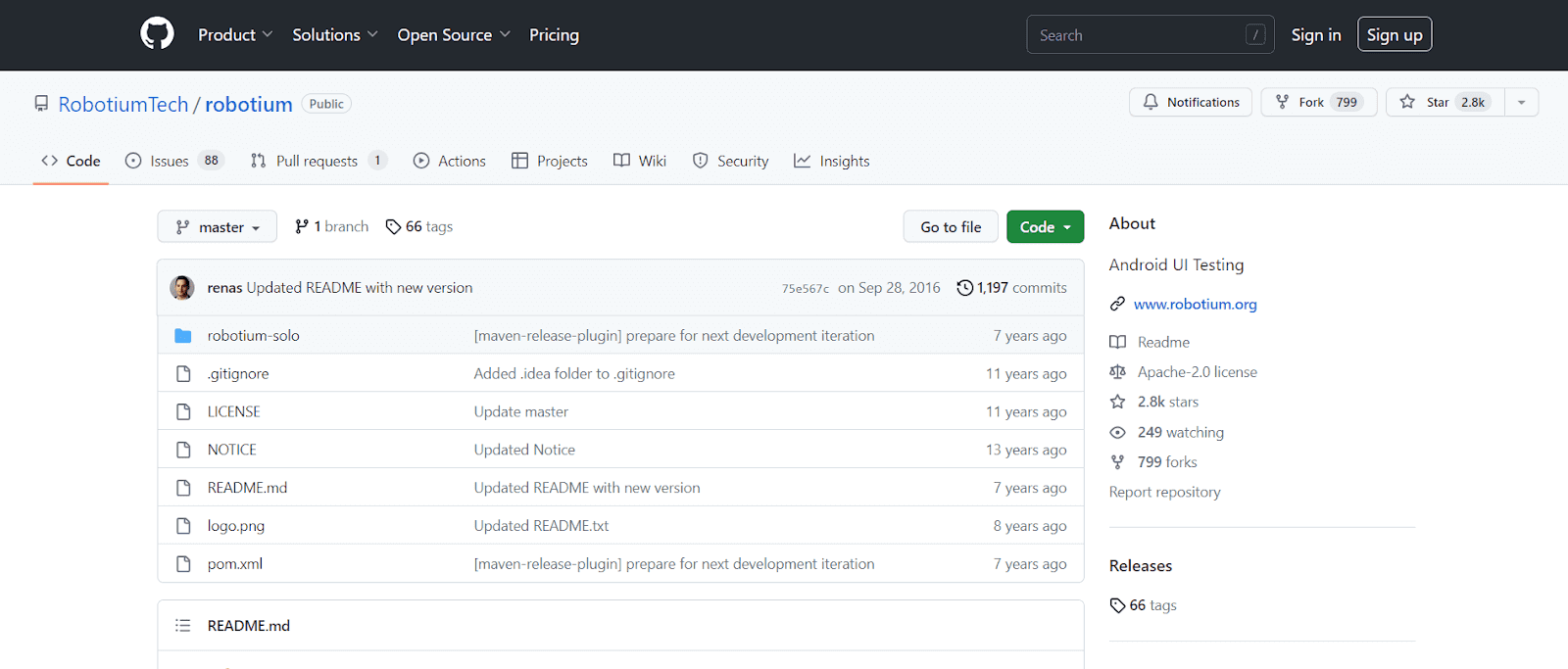
Robotium is a famous open-source Android app testing tool that is well-known among developers for its quality and dependability. Robotium provides full support for both hybrid and native Android applications. It simplifies the creation of comprehensive and powerful automated black-box UI tests for Android apps. Robotium allows testers and developers to create system, function, and user-friendly test cases that span many Android activities.
Being one of the key Appium alternatives for Android, Tobotium offers the following advantages:
- Test native and hybrid Android applications.
- Minimum familiarity with the program being tested is necessary.
- The framework automatically manages several Android tasks.
- Writing reliable test cases takes very little time.
- Compared to conventional instrumentation tests, the readability of test cases is significantly increased.
- Because the test cases are bound to UI components at run-time, they are more reliable.
- Quick execution of test cases.
- Seamlessly integrates with Gradle, Maven, or Ant to conduct tests as a component of continuous integration.
 Note
NoteTest on 3000+ real devices for Android and iOS, including the latest iPhone 15 Try LambdaTest Today!
3. EarlyGrey
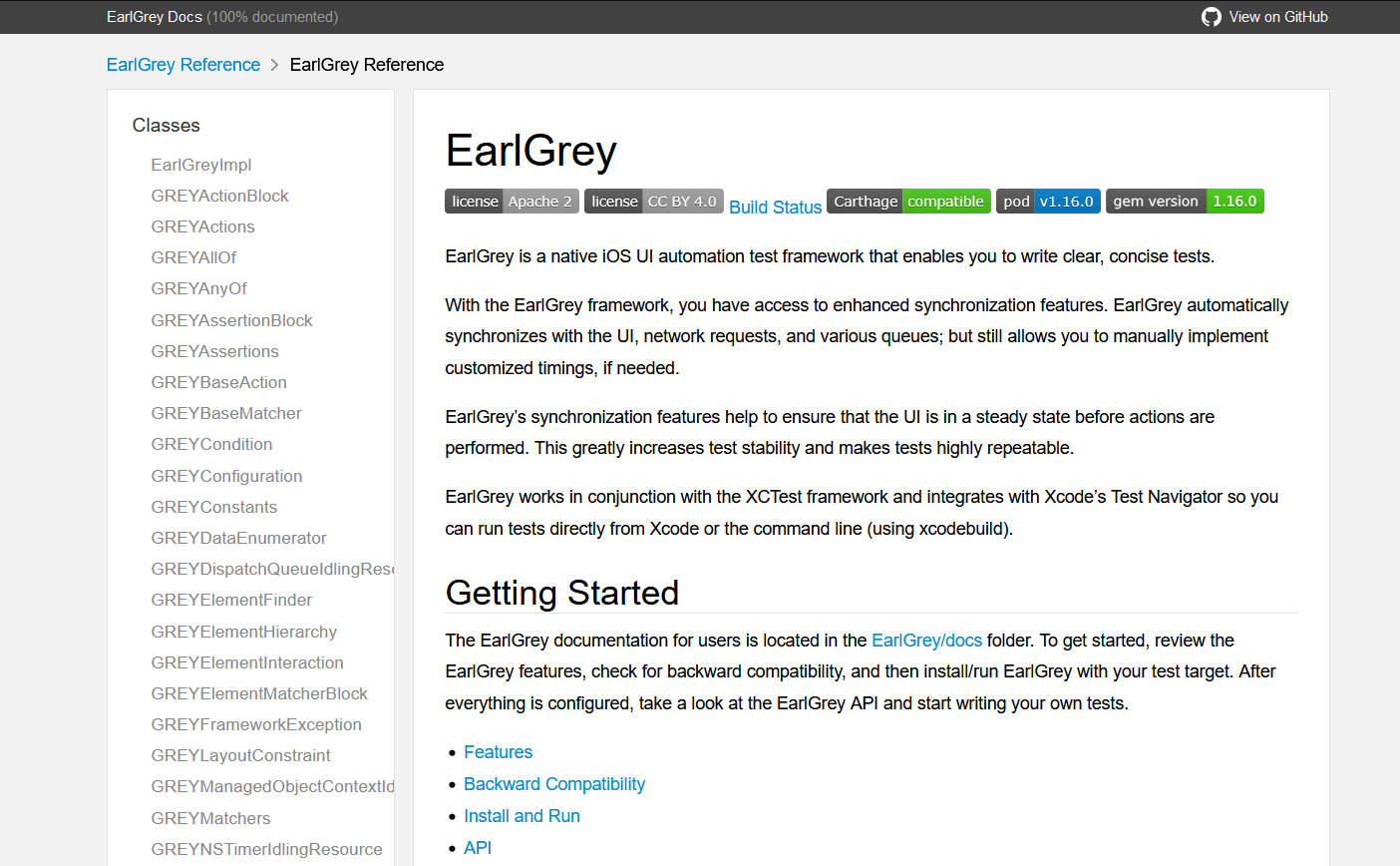
EarlGrey is a mobile app test automation framework developed by Google for iOS mobile app testing. It uses a gray box testing technique, permitting it to access the internal implementation of the iOS app being tested.
With the EarlGrey framework, we have access to improved synchronization features. It automatically synchronizes with the network requests, UI, and various queues; but still lets us manually implement customized timings if needed.
EarlGrey’s synchronization features ensure that the UI is steady and controlled before actions are executed. This significantly makes tests highly repeatable and increases test stability. This framework also has features such as capturing screenshots during test execution and concurrent test execution that help debug and visualize test results.
EarlGrey operates concurrently with the XCTest framework and easily integrates with Xcode’s Test Navigator, so we may run tests directly from the Xcode or the command line (using the xcodebuild).
4. Calabash
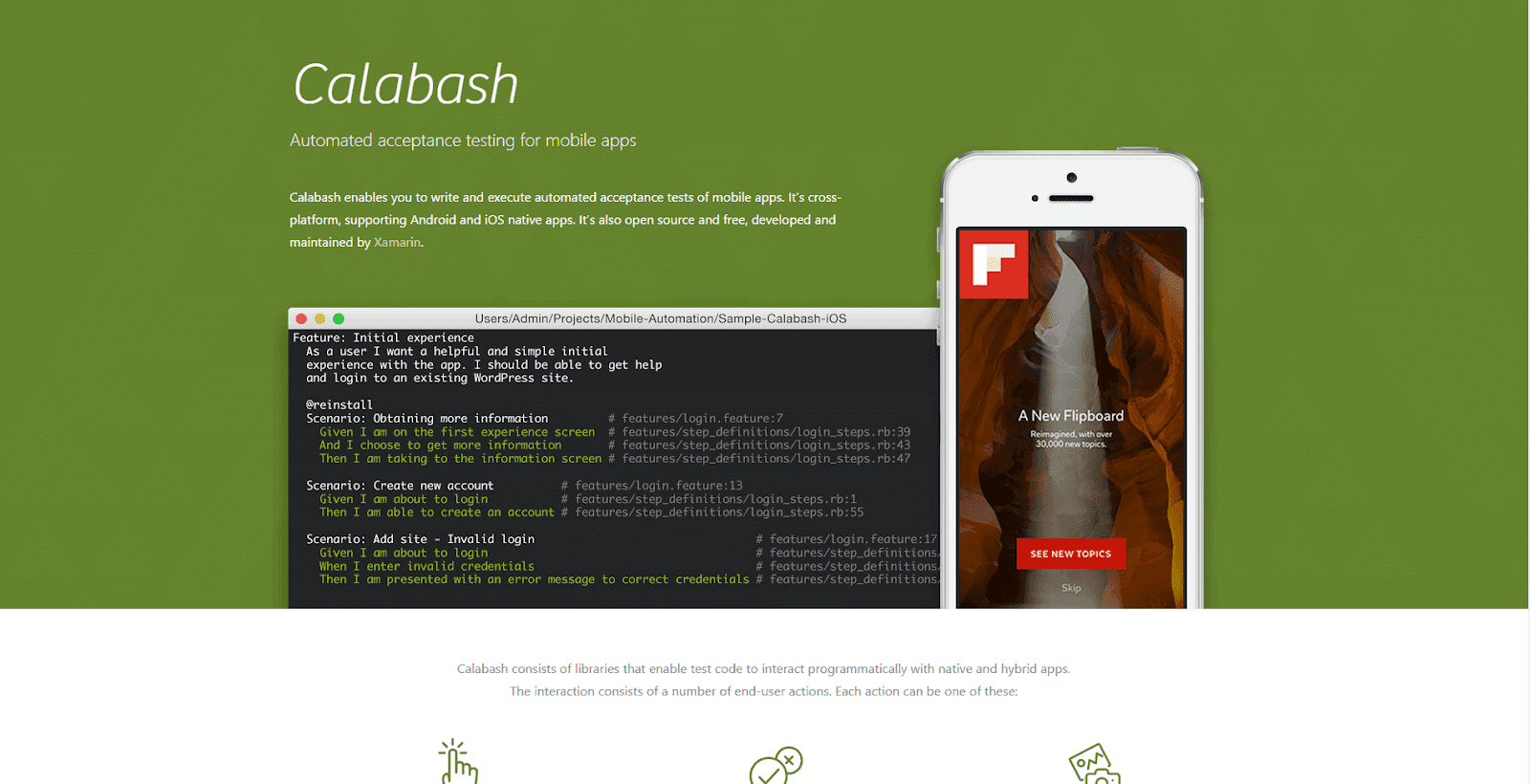
The Calabash open source testing framework, developed and maintained by the Xamarin team, works for Android and iOS. It lets us write and execute automated acceptance tests for mobile applications.
Calabash allows testers and developers to write test scripts in a human-readable language called Gherkin, which makes it easier to understand and maintain test cases.
It’s well suited for most testing use cases and supports many programming languages like Java, C#, and Python. It is considered one of the best Appium alternatives because of its features.
5. Xamarin.UITest
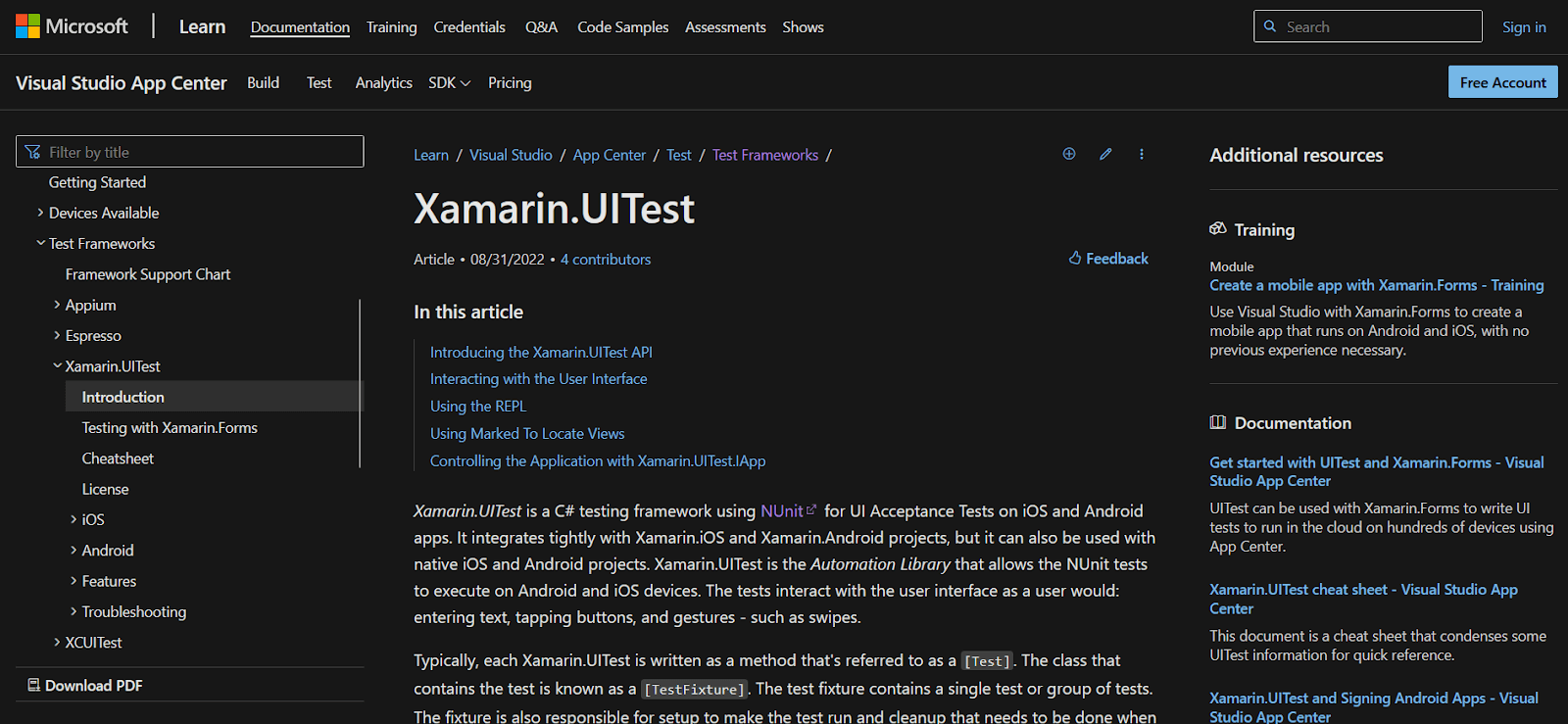
Xamarin.UITest is a C# mobile testing framework that allows automation of apps using the NUnit framework. It works for both Android and iOS platforms. Xamarin.UITest easily integrates with Xamarin.iOS and Xamarin.Android projects, but it’s also compatible with native iOS and Android projects. This framework allows us to write test cases to interact with the user interface like a real user, performing actions like entering text, tapping buttons, and executing gestures like swipes.
In Xamarine.UITest, each test is typically based on the Arrange-Act-Assert pattern:
- Arrange: The test will set up and initialize test conditions so that the test can be actioned.
- Act: The test will interact with the app’s UI, enter text, push buttons, etc.
- Assert: The test evaluates the results of the actions executed in the Act step to determine effectiveness. For example, the app may verify that a specific error message is displayed.
It’s ideal to begin using Xamarin.UITest while developing a mobile app. For older apps no longer in active development, adding automated tests later might not be cost-effective.
6. XCUITest
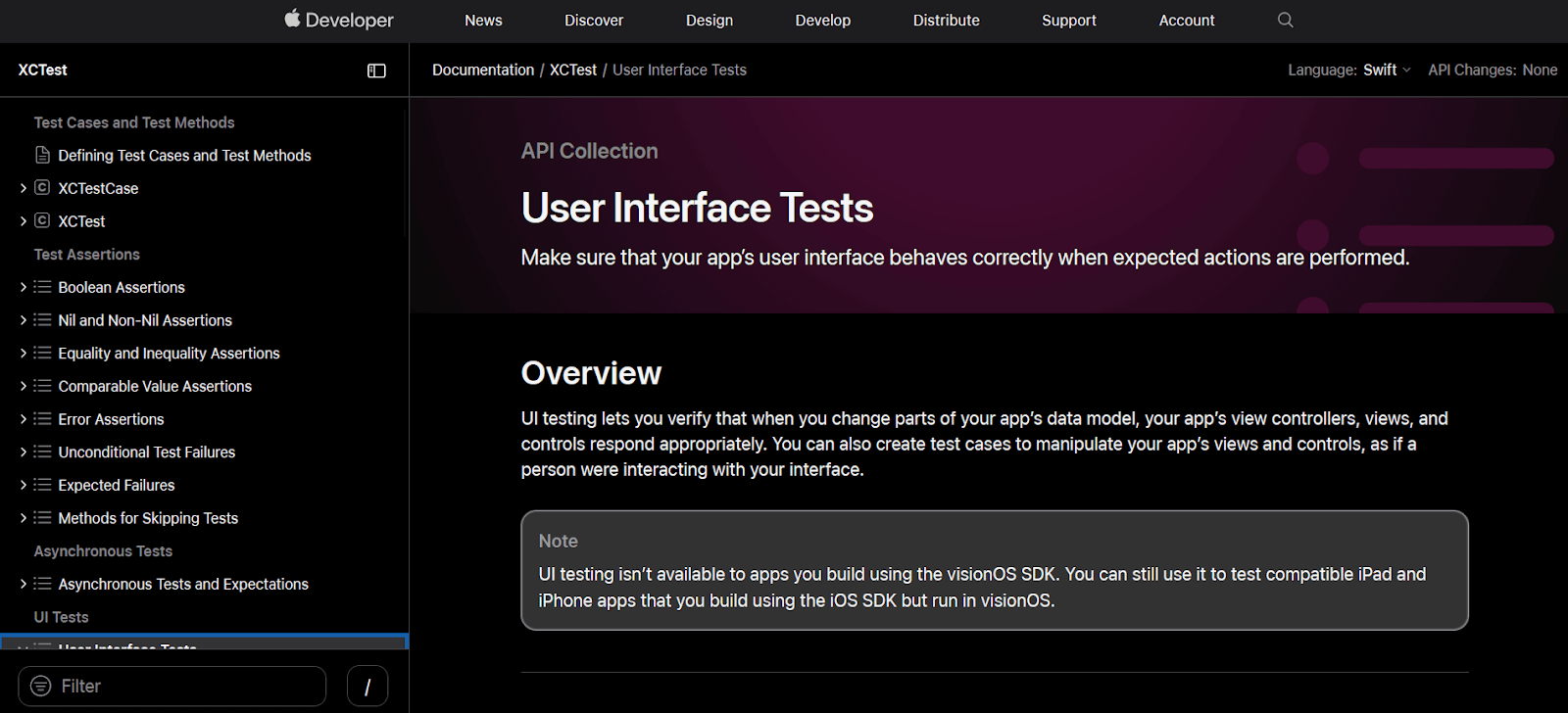
XCUITest is a test automation framework developed by Apple, specifically for automating UI testing of iOS applications. It uses XCTest, Apple’s integrated test framework for Xcode. We can create automated UI tests for native iOS apps using the XCUITest framework, utilizing Swift or Objective-C.
XCUITest framework is regarded as one of the finest mobile app testing frameworks because it is easy to maintain, avoids test flakiness, and improves the overall continuous integration (CI) process.
Test written using XCUITest runs in Xcode on a simulator (iPhone or iPad) or a connected physical iOS device. This enables real user interaction behavior for UI testing.
7. Firebase Test Lab
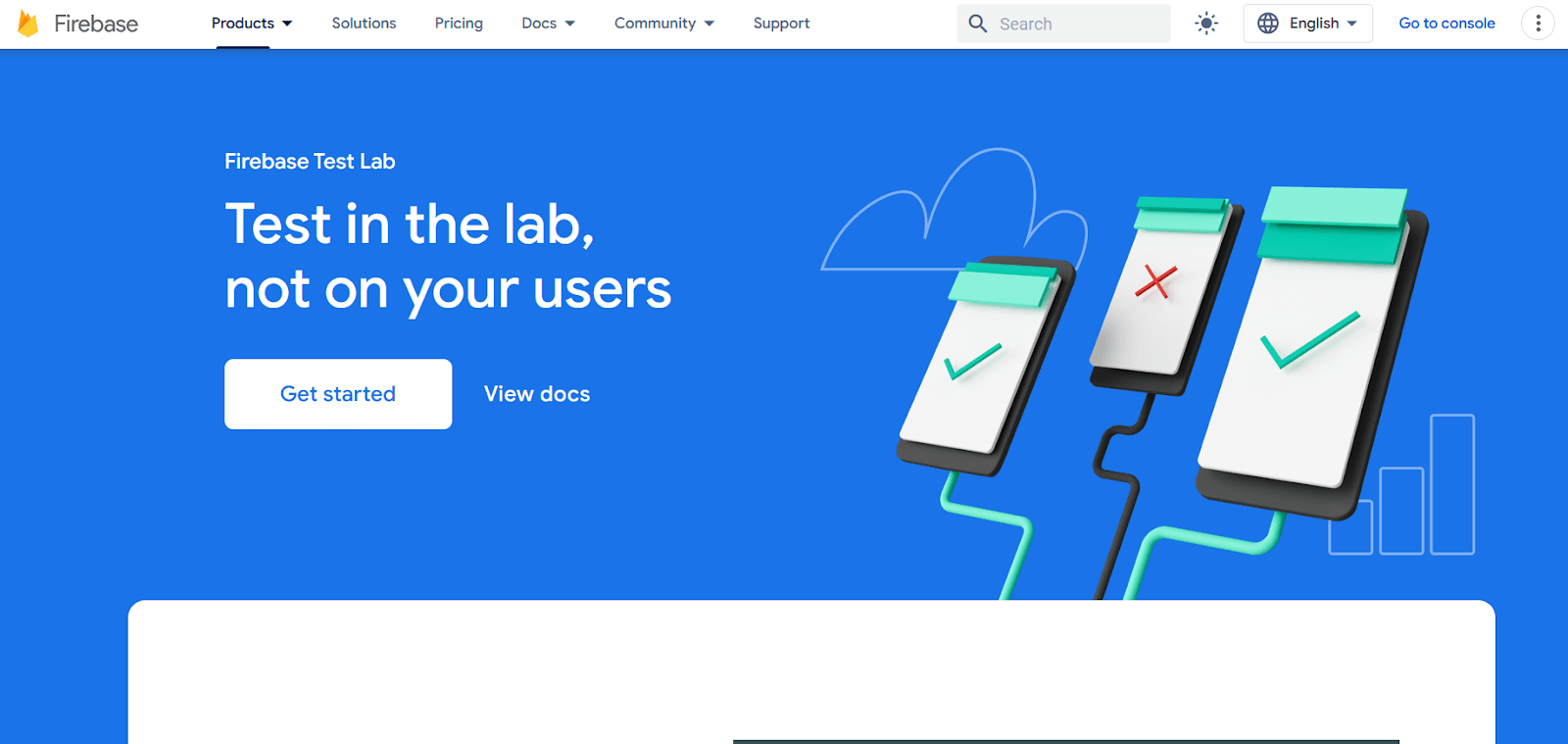
Firebase Test Lab is a cloud-based mobile app testing infrastructure that lets testers test mobile apps on a range of mobile devices and configurations, so they can get a better picture of how it’ll function in the hands of live users. It is used to run tests on both Android and iOS devices. It provides a wide range of testing options, such as functional testing, compatibility testing, and performance testing.
Test Lab uses production-ready devices running on a Google data center to test apps. The devices are flashed with the latest APIs and have customizable settings, allowing testers to test their app on the hardware and configurations it will encounter in the real world.
Test lab provides detailed test results, including videos, screenshots, and logs in the Firebase console. Even if testers haven’t written any test cases for the app, Test Lab can automatically test apps for possible crashes.
8. Selendroid
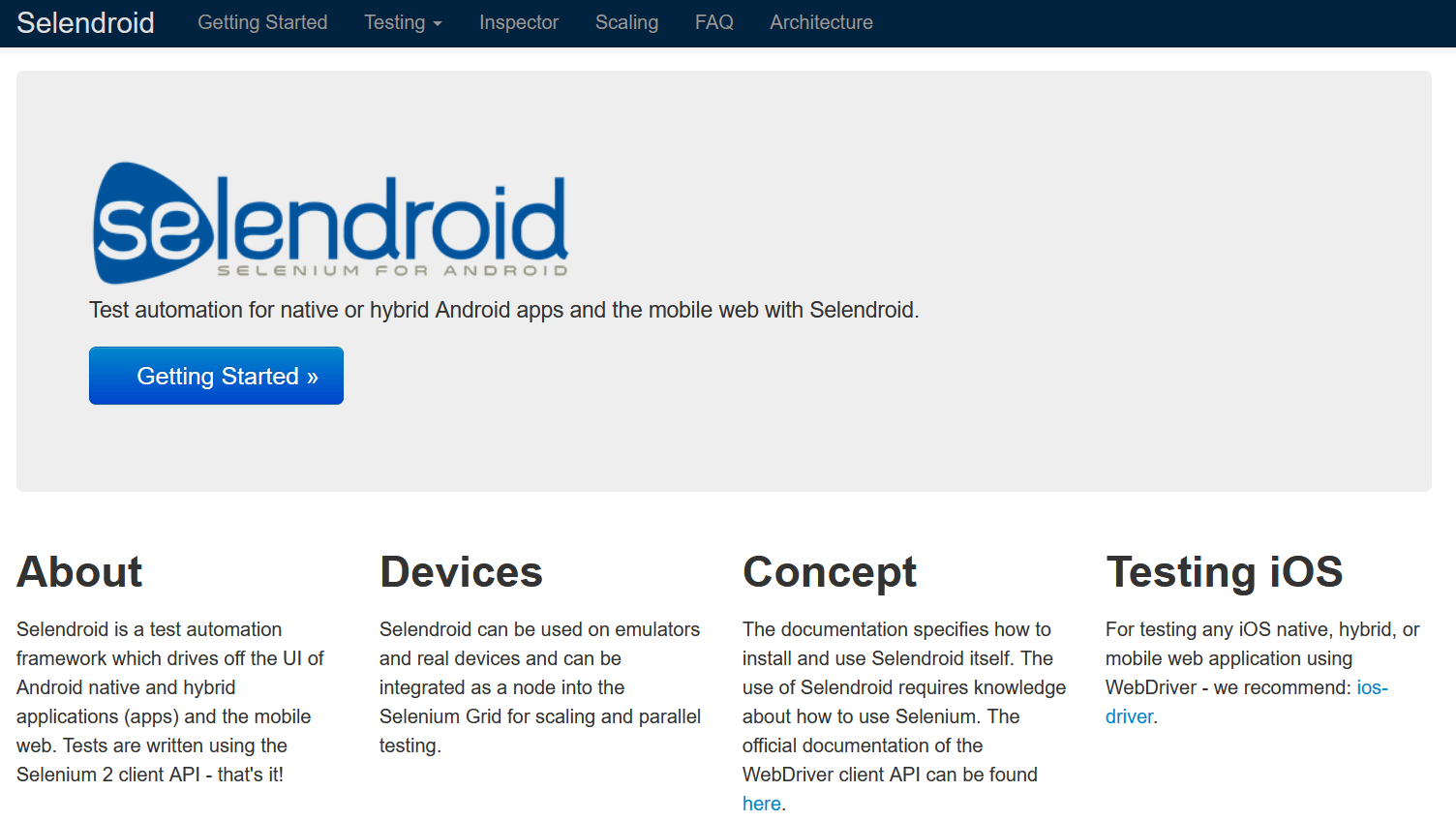
Selendroid is an open-source mobile automation framework developed to test the UI of Android native, hybrid, and mobile web apps. It uses the underlying Android instrumentation framework to accomplish this functionality. In addition, the tests are scripted using the Selenium 2 client API, also known as the Selenium WebDriver; this integration allows Selendroid to utilize the existing Selenium framework effectively.
Selendroid seamlessly blends with the latest JSON wire protocol and is compatible with Selenium 3, making it a trustworthy choice for test automation. With Selendroid, there’s no need to configure or modify the app we want to test, facilitating the automatic test method for mobile testing.
9. Nightwatch.js
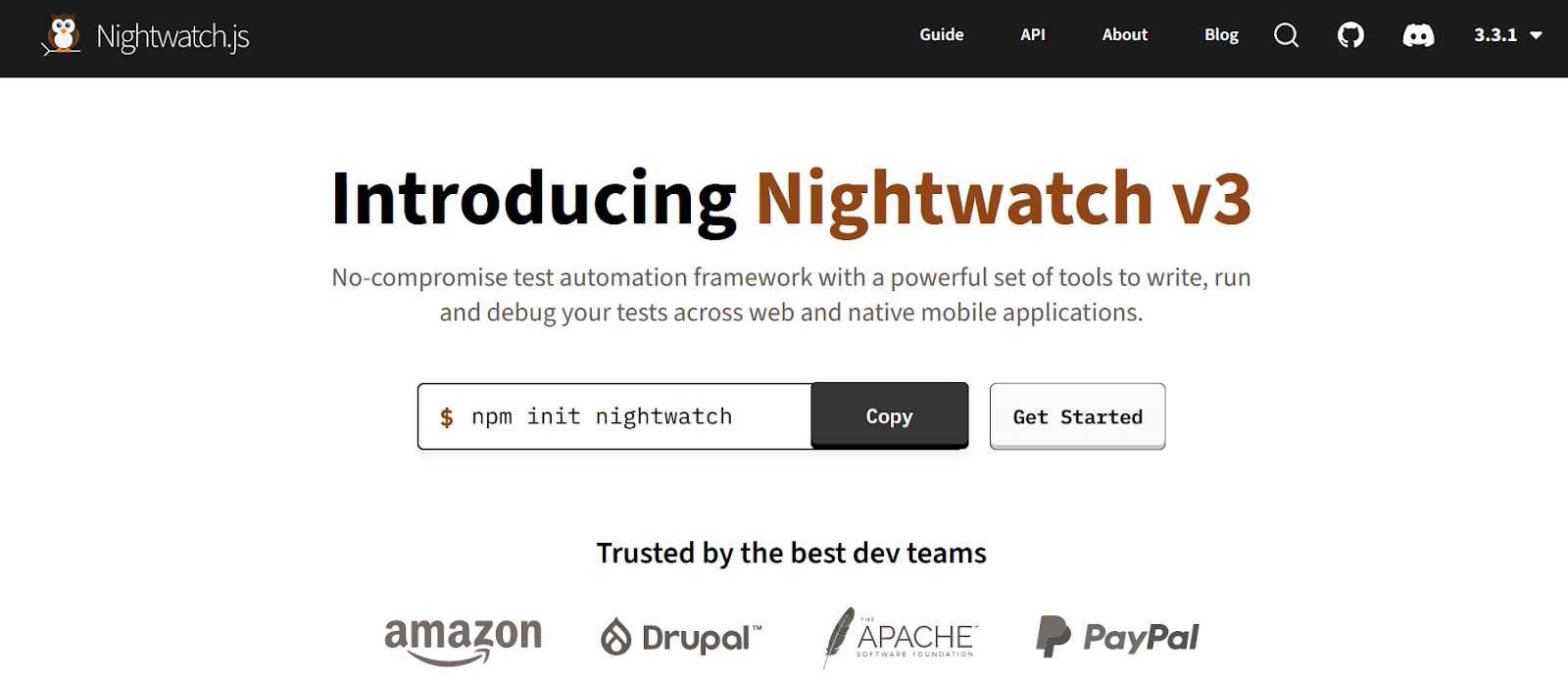
Nightwatch.js is a free, open-source automated testing framework powered by Node.js that offers complete E2E (end-to-end testing) solutions for web and native mobile apps.
Nightwatch.js is built on the Selenium framework and uses the W3C WebDriver API (Selenium WebDriver). It communicates with a WebDriver server (ChromeDriver or Selenium Server) via a restful HTTP API.
This framework provides a holistic approach to testing, covering end-to-end and cross browser testing. Its primary objective is to streamline the creation and execution of diverse test types, such as end-to-end testing, unit testing, and integration testing.
10. monkeyrunner
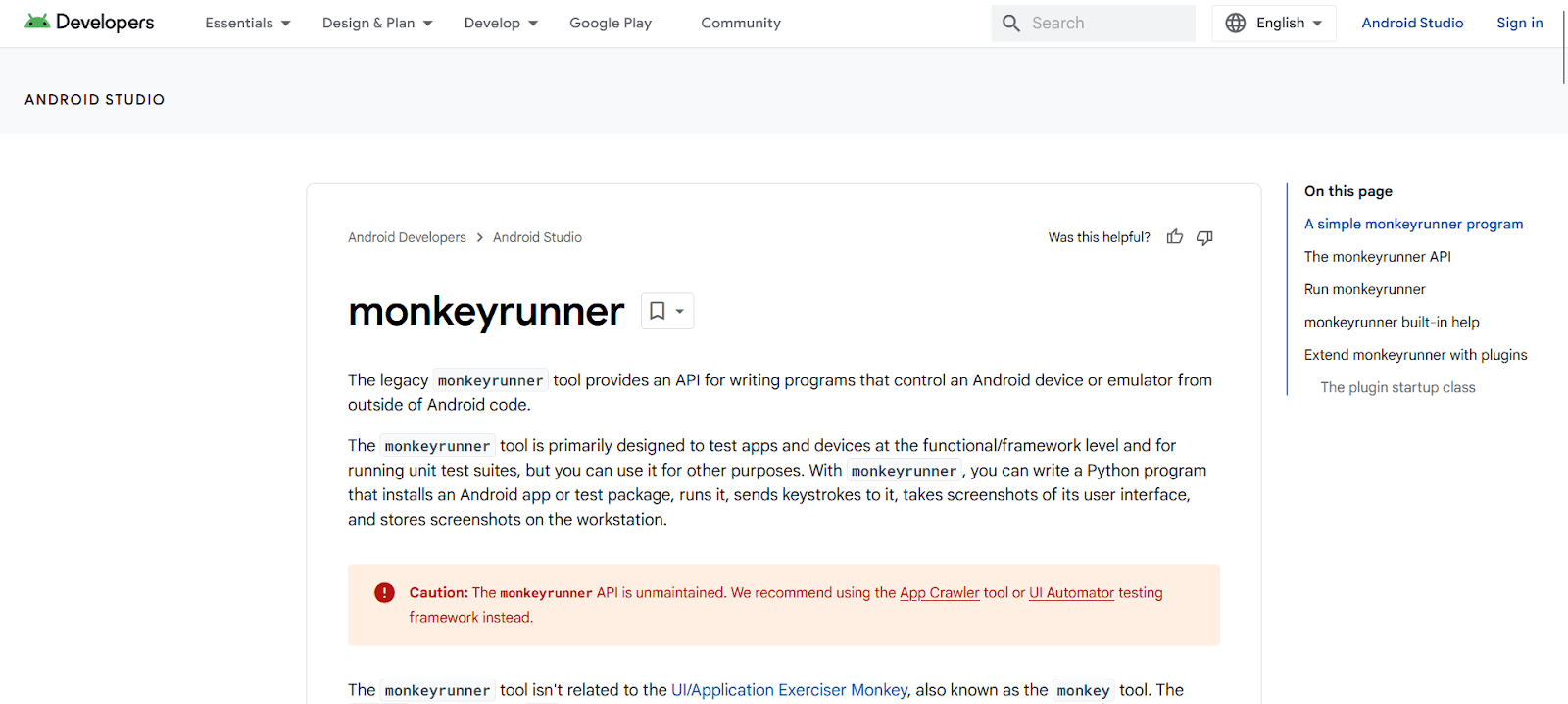
The legacy monkeyrunner is an automation testing tool that provides an API for developing programs that control and manage an Android device or emulator externally from Android code.
While the primary focus of the monkeyrunner tool is on testing Android applications and devices at the functional or framework level, as well as executing unit test suites, its usage can be extended to other purposes. With monkeyrunner, testers may create a Python program that can be integrated with a test package or Android app, run it, send keystrokes, take screenshots of its user interface, and store screenshots on the workstation.
11. App Crawler
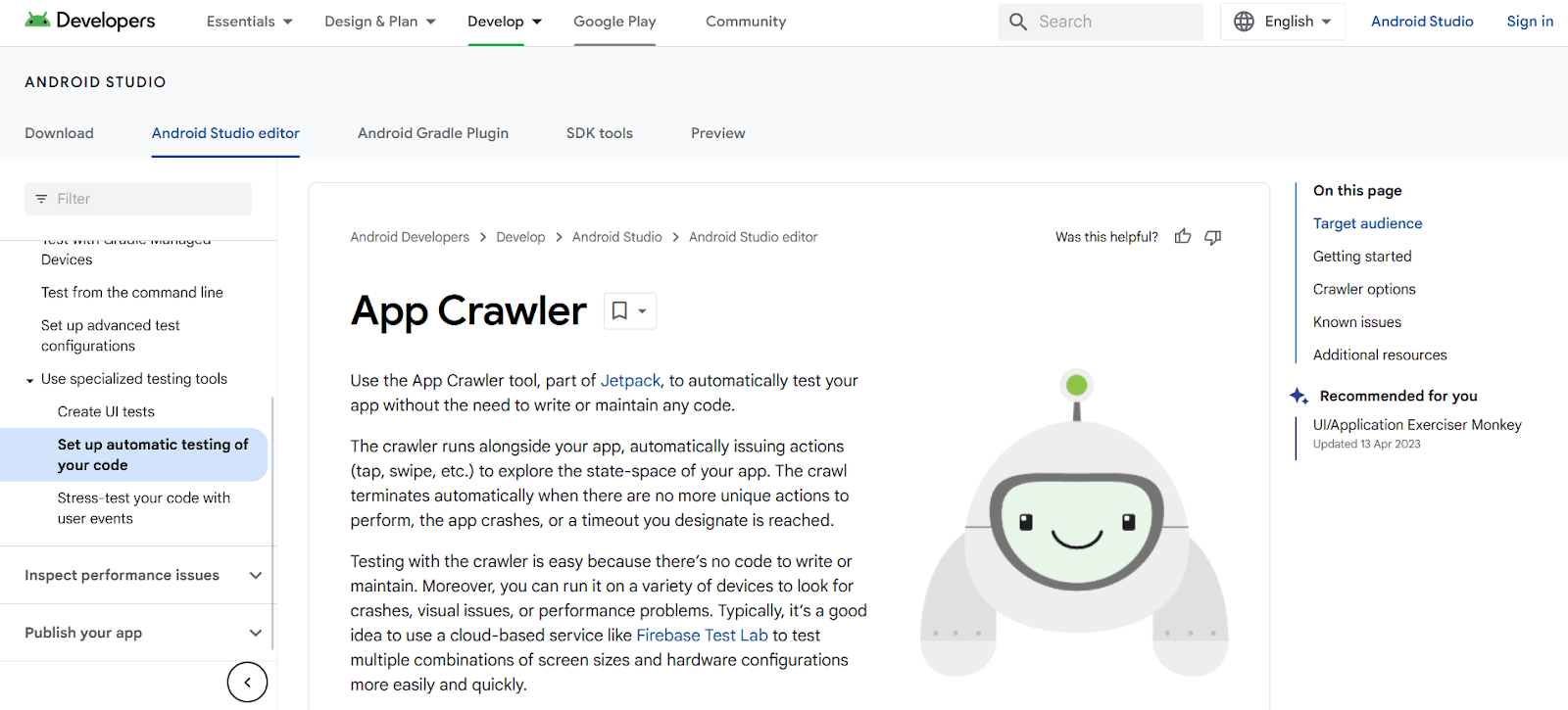
App Crawler, developed by Google, is an automation testing tool that can be used to automatically test mobile apps without needing to write any code. It is a part of the Android Jetpack library. It is mainly designed for developers who want to test their app’s basic functionality with minimum configuration.
The crawler runs along with the app being tested, automatically performing actions (such as tap, hold, swipe, etc.) to explore the app’s state-space. When no more unique activities are executed, the program crashes, or a timeout is reached, and the crawl automatically ends.
Testing with the App Crawler is simple because there is no code to write or maintain. Furthermore, it may be performed on a number of devices to look for crashes, visual faults, or performance concerns. To test numerous combinations of screen sizes and hardware configurations more easily and rapidly, using a cloud-based tool like Firebase Test Lab and LambdaTest is usually a good idea.
12. UI Automator
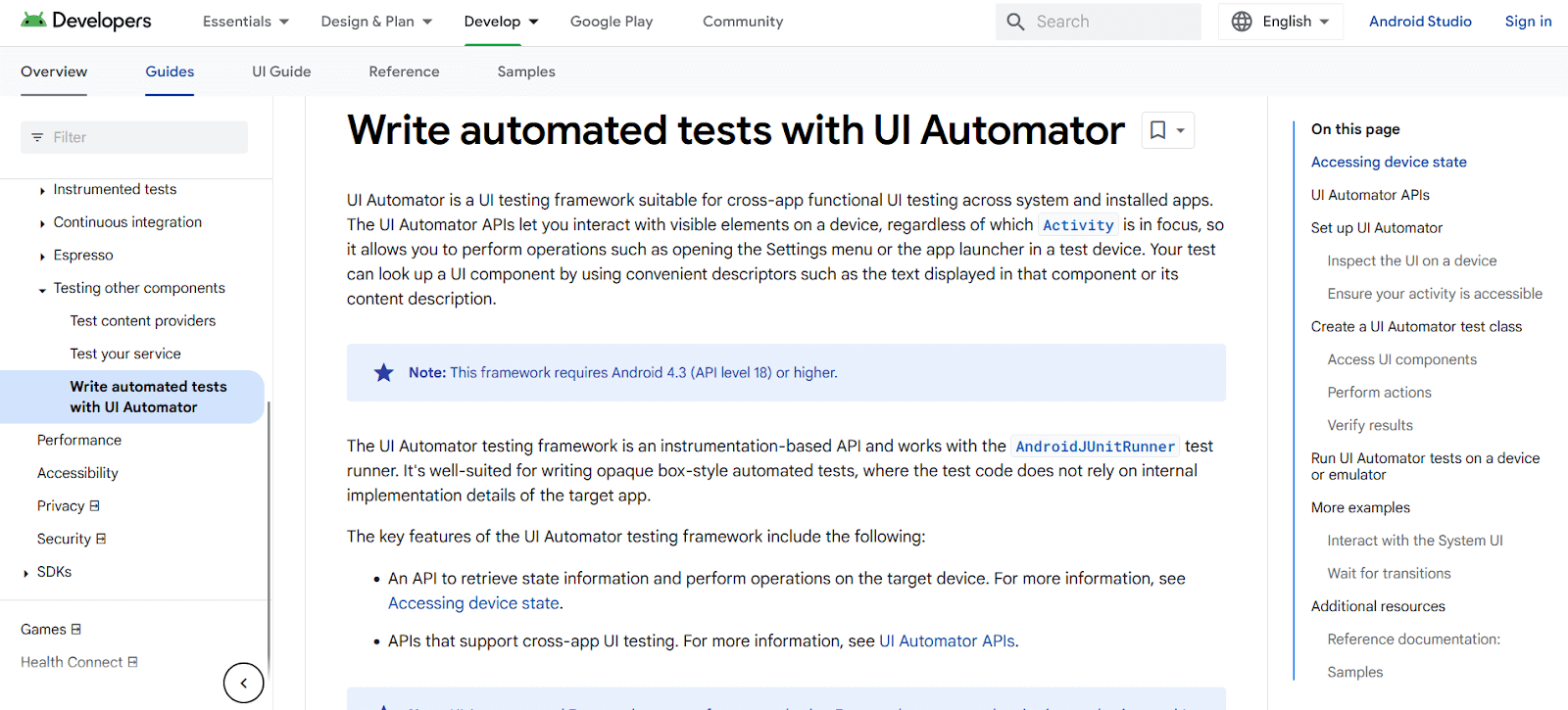
UI Automator is a user interface (UI) testing framework for functional UI testing among systems and installed apps. The UI Automator APIs allow testers to interact with visible items on a device regardless of which Activity is in focus, allowing them to open the settings menu or the app launcher in a test device. The test can look up a UI component using descriptors like the text shown in that component or its content description.
UI Automator is compatible with the AndroidJUnitRunner test runner. It works great for creating automated tests in the opaque box approach, where the test code doesn’t depend on the target application’s internal implementation details.
 Note
NoteFast-track your release velocity with an agile, more reliable platform to automate UI testing with LambdaTest. Try LambdaTest Today!
13. iOS Driver
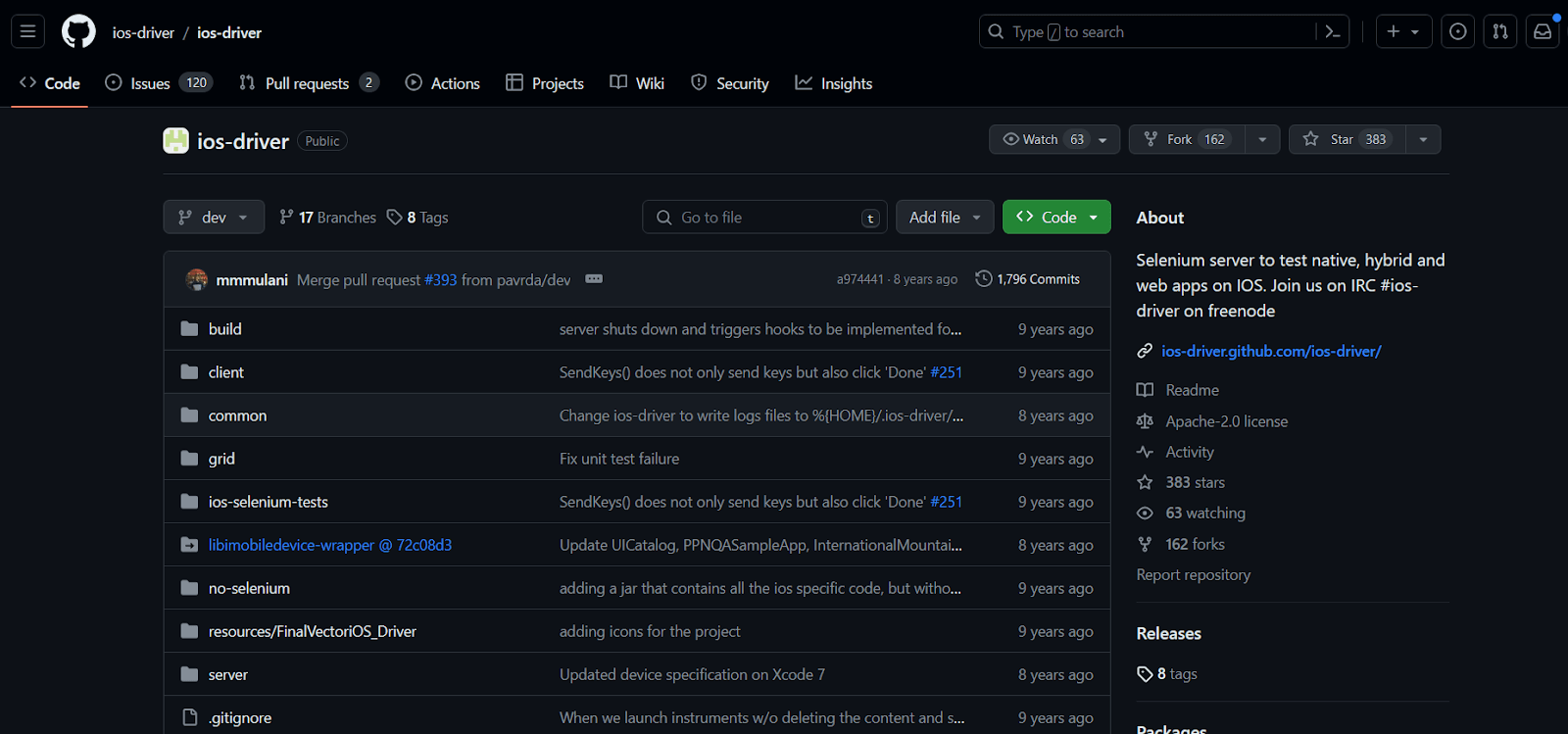
iOS Driver is a Selenium server to test hybrid, native, and web apps on iOS devices. It is one of the Appium alternatives demonstrating outstanding performance on emulators and simulators.
It uses the Selenium WebDriver API that allows the easy integration of iOS native and hybrid mobile apps with Selenium, enabling effective testing techniques. It is important to remember that the iOS Driver depends on two different frameworks Apple has created. Consequently, confirming the system requirements before starting the installation procedure is crucial.
14. KIF (Keep It Functional)
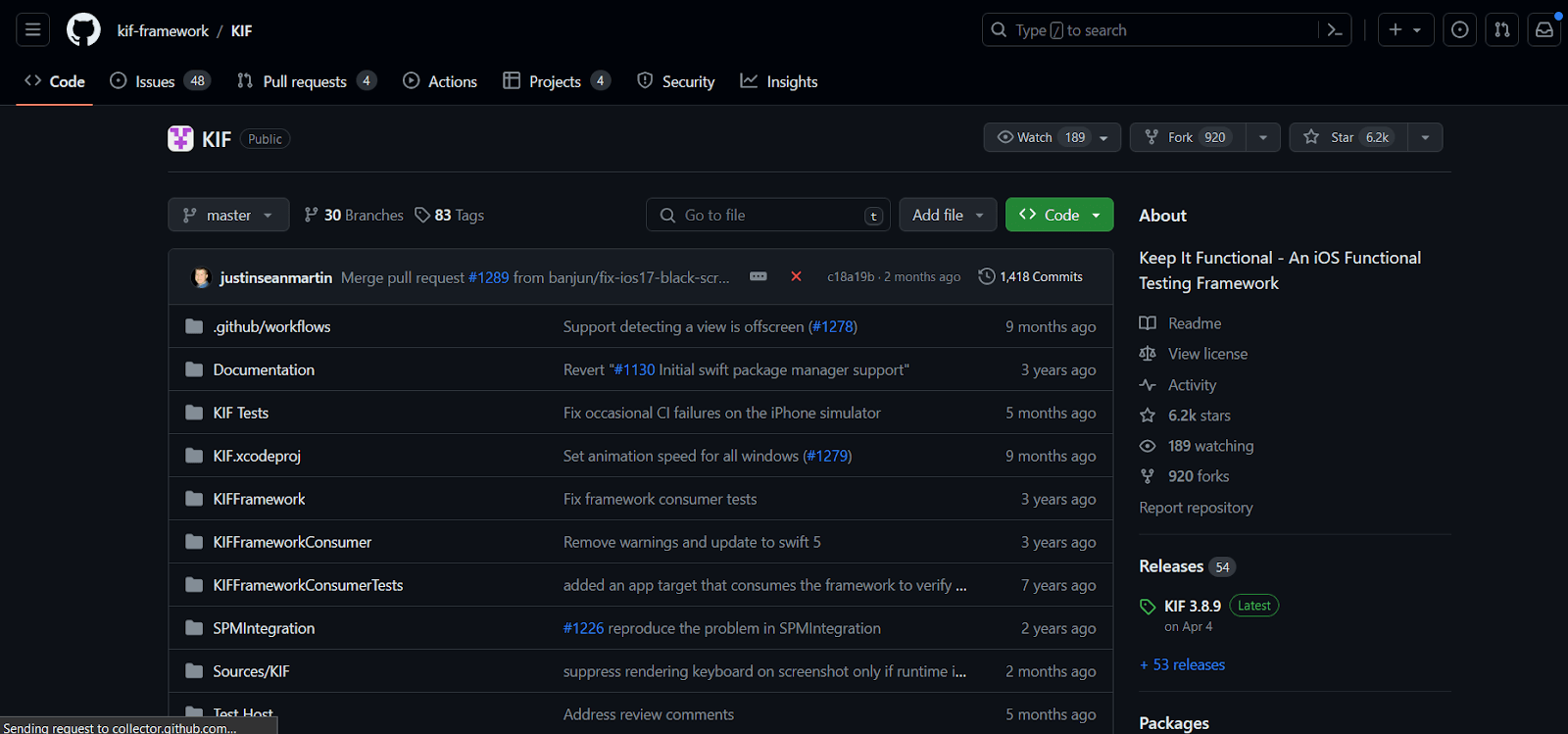
Keep It Functional, or KIF for short, is a framework for iOS integration tests. It uses the accessibility features that the operating system provides for those with visual impairments to simplify automation of iOS applications.
KIF uses a common XCTest testing target to develop and run the tests. By forcing time to flow through the run loop, testing is done synchronously in the main thread, enabling more intricate composition and logic. This enables KIF to benefit from command line build tools, Bot test results, and the Xcode Test Navigator.
KIF is one of the key Appium alternatives for iOS devices. KIF leverages the undocumented Apple APIs. This is safe for testing purposes, but it is important to ensure that KIF does not make it into production code, otherwise it will get your app submission rejected by Apple.
15. TestFlight
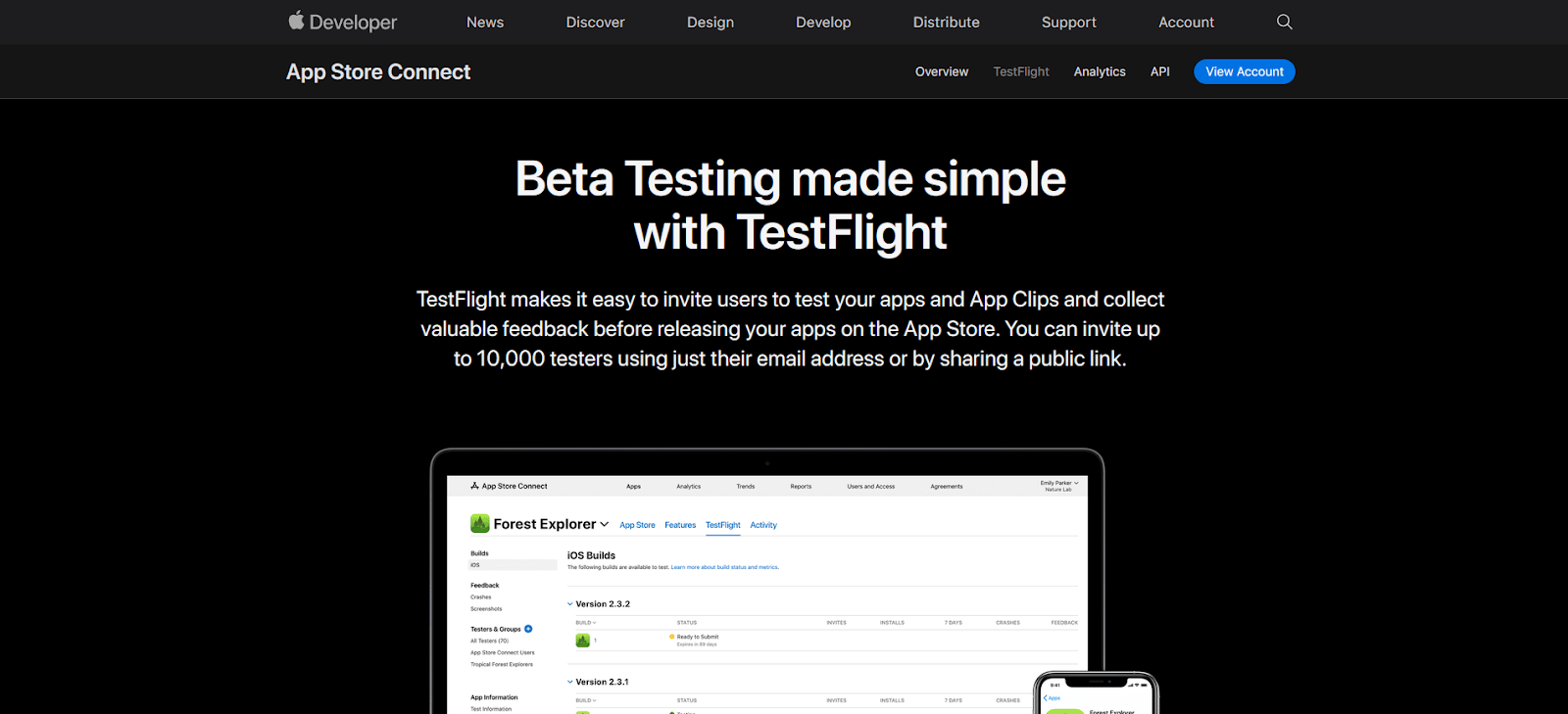
TestFlight is a tool offered by Apple that can be used to perform user testing on iOS and Mac devices. TestFlight provides an easy-to-use solution for inviting people to test your apps, allowing testers to gain vital feedback before releasing them on the App Store. Testers can easily upload a beta or alpha version of the app to App Store Connect by using TestFlight. Testers can then use the TestFlight app to install your app and provide feedback. TestFlight supports iOS, iPadOS, watchOS, macOS, tvOS, and iMessage apps, while automatic upgrades ensure that testers always work with the most recent code.
This blog has discussed the top 15 Appium alternatives that can be used to test native, hybrid, and web apps on Android and iOS devices. However, all these Appium alternatives can only be used to test apps on a smaller scale. Thus, we can use the power of cloud-based testing platforms to enhance the scalability of testing mobile apps. Let’s see how to test mobile apps on cloud platforms.
How To Test Mobile Apps on the Cloud?
Cloud-based testing platforms are online services that provide tools and infrastructure for mobile app testing. They allow testers to perform various testing activities, such as functional, performance, and compatibility testing, using resources hosted in the cloud, offering scalability, flexibility, and collaboration advantages. One such cloud-based testing platform is LambdaTest
LambdaTest, an AI-powered test orchestration and execution platform, offers both real and virtual devices on the cloud ( i.e., Emulator and Simulator) for mobile app testing. Here are the steps for mobile app testing on LambdaTest Real Device cloud.
- Create an account for free on LambdaTest & you will have a pop-up box with 3 options: Automation testing, Realtime testing, and real-device testing.
- Select the Realtime Testing option and navigate to the App Testing section as shown below.
- Upload an app in apk format to test from the local computer or a public cloud link.
- Select a device from the wide range of Android & iOS emulators or simulators to test the mobile apps.
- To end the test session, click the End Session icon in the left panel. It will terminate the ongoing test session
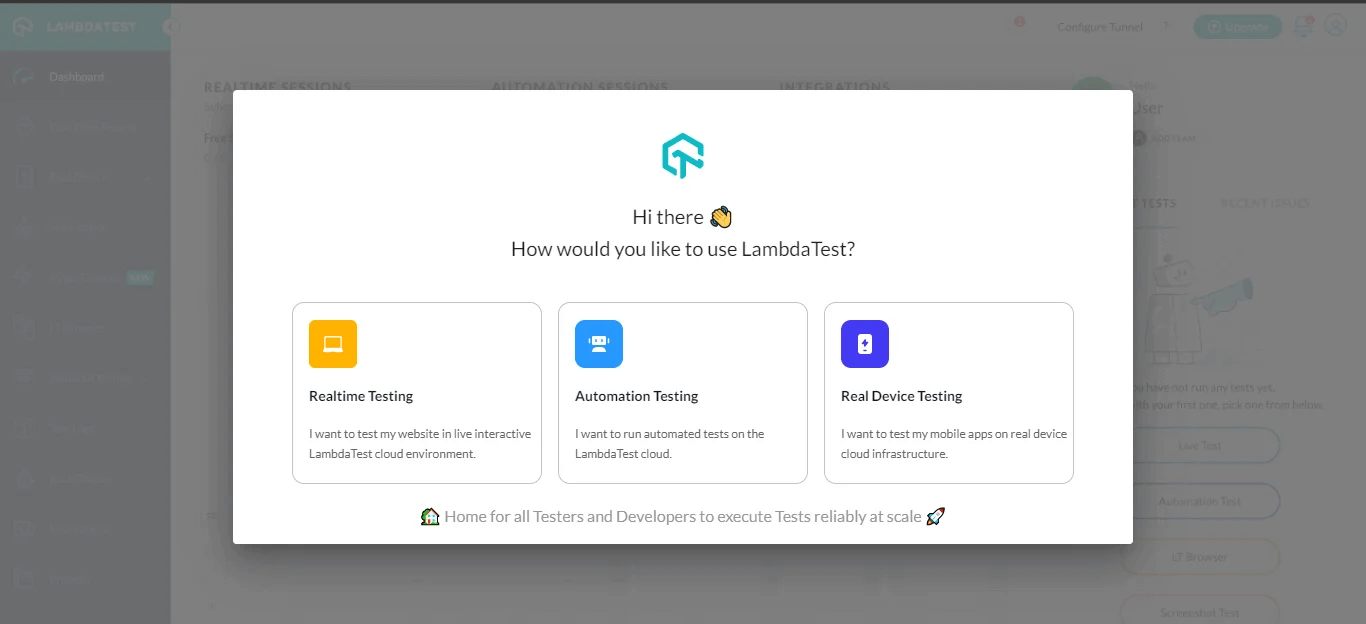
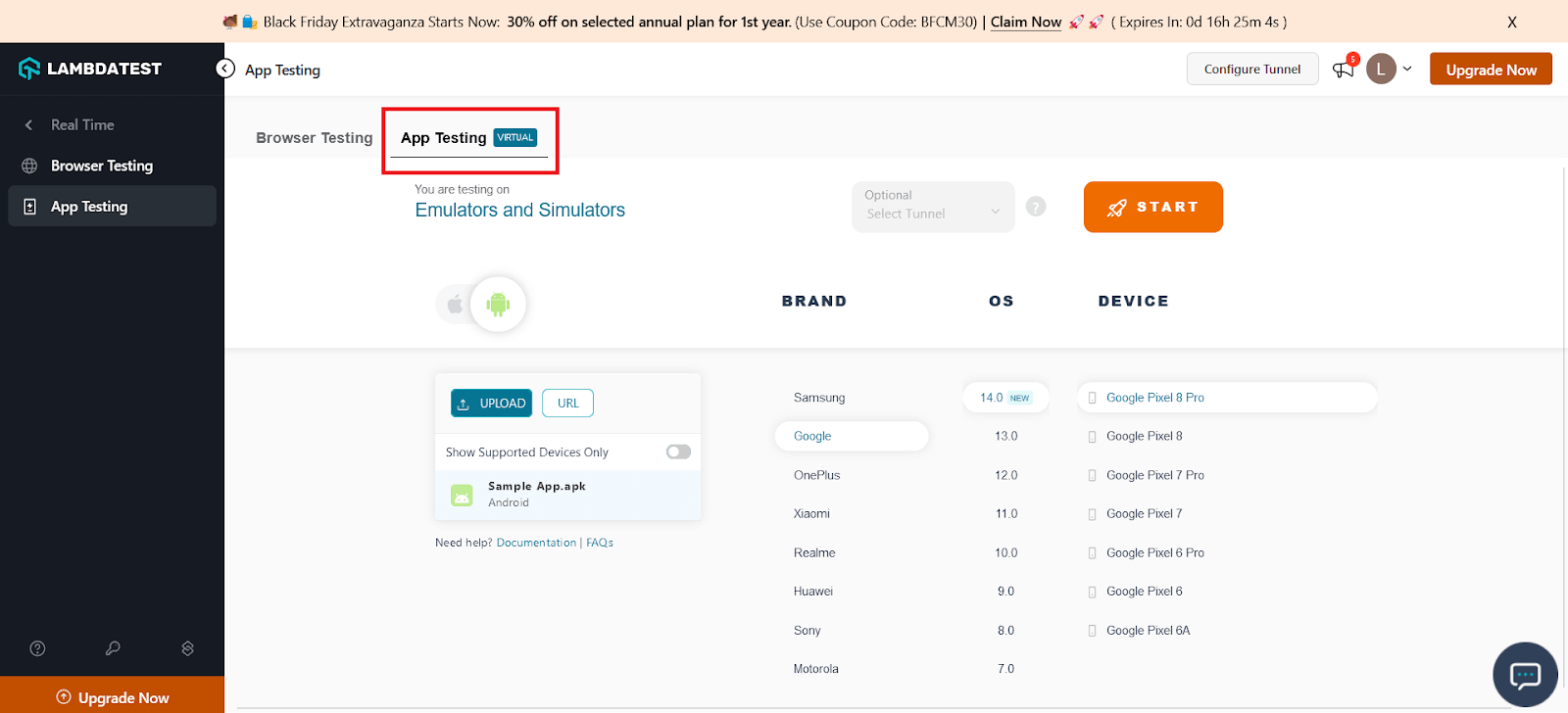
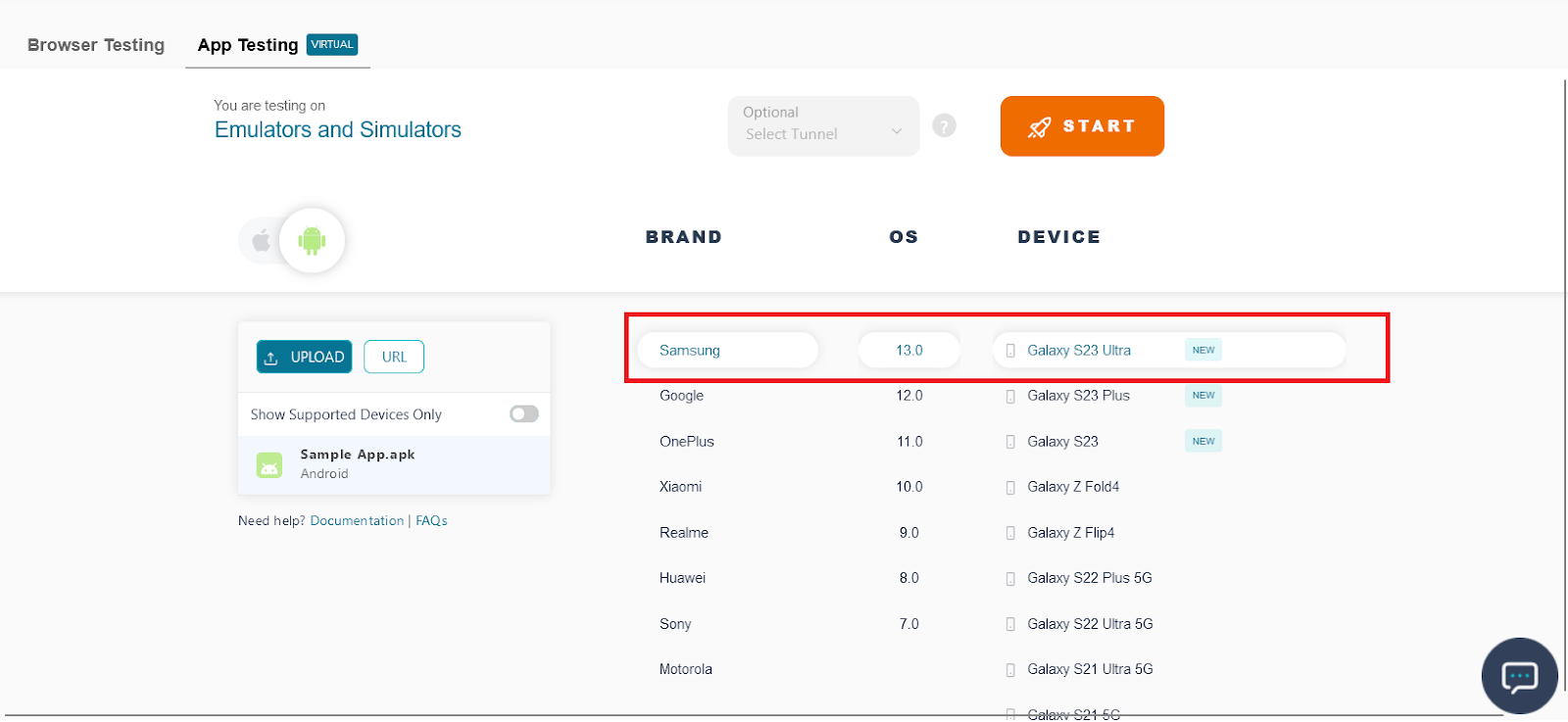
Conclusion
While Appium is considered one of the best mobile automation frameworks available today, numerous competitors in its space are improving rich features like simple API framework, concurrent testing, and cross-platform testing capabilities. In this article, we have curated a list of 15 best Appium alternatives available in the market for 2023.
Frequently Asked Questions (FAQs)
What is Appium?
Appium is an open-source mobile testing tool which is used to test mobile and web applications on iOS, Android, and Windows mobile platforms.
What are some free Appium alternatives?
Some free and open source Appium alternatives are Espresso, Robotium, EarlyGrey, Calabash, Xamarin.UITests, XCUITest, and Selendroid.
Do people still use Appium for mobile testing?
Yes, absolutely. Many Appium scripts are still in use in the mobile testing ecosystem. Yet, many testers are considering or actively seeking a migration to more modern cloud based Appium alternatives such as LambdaTest.
Got Questions? Drop them on LambdaTest Community. Visit now













